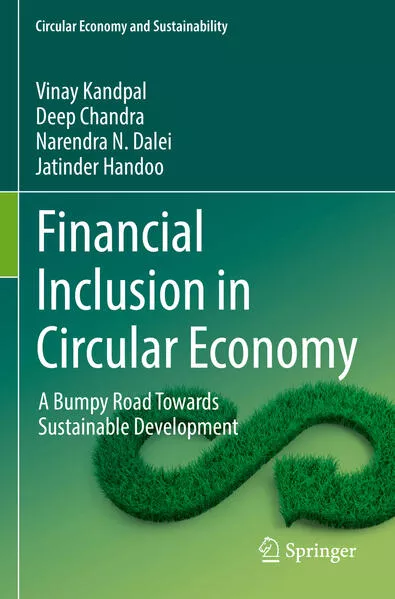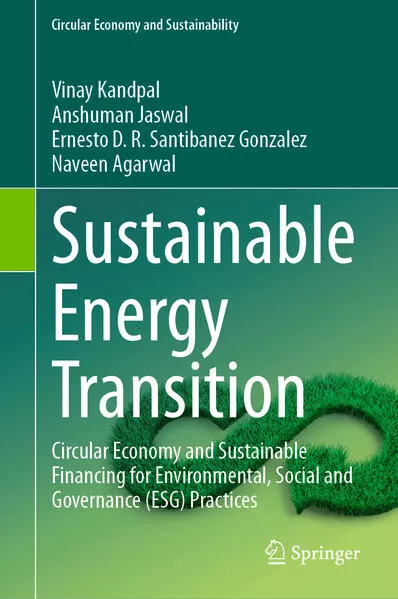
- Publikationen ca: 5
- Fragen & Antworten
Vinay Kandpal
Deep Chandra is an experienced banker turned academician, retired as a Vice President from Nainital Bank Ltd., after serving the bank for 33 years. He is working with Amrapali Group of Institutions, Haldwani, Uttarakhand, India as an Associate Professor for the last 5 years. He has exhibited the ability of people management, business development and public relations throughout the service tenure and presently imparts practical knowledge to management students. He is M. Sc. (Statistics), MBA and Ph.D. in Finance. He is also a Certificated Associate of the Indian Institute of Banking and Finance.
Narendra N. Dalei obtained a Ph.D. from University of Delhi in the area of Ecological and Environmental Economics in 2012 and completed Certificate of Proficiency in “Climate Action: Solutions for a Changing Planet” from UN’s SDG Academy. Currently, Dr. Dalei is working as the Head and the founding member of the Centre for Energy, Environment, and Sustainability Studies and Assistant Professor (SG) at the School of Business, University of Petroleum and Energy Studies (UPES), Dehradun, India. Dr. Dalei is life member of Indian Society for Ecological Economics, The Indian Econometric Society, and International Society for Ecological Economics. Prior to joining UPES, Dr. Dalei worked in various positions at University of Delhi and its Constituents colleges, IGNOU, FICCI, Zenith Energy and NSSO, MOSPI, Govt. of India. He has published more than 50 research papers in national and international journal of repute and contributed more than 15 book chapters to his credit in the areas of economics, ecological economics, energy and environment; presented papers in more than 15 national and international conferences. He is the editor of the Book titled, “Energy, Environment and Globalization” published by Springer Nature in 2020. Dr. Dalei received outstanding reviewer award in 2015 and in 2017 from Energy Policy, Elsevier, Amsterdam, The Netherlands. He received Best Research Paper Presentation Award 2018 from 20th International Conference on Climate Change and Global Warming (29th to 30th October) held at Paris, France. Currently, Dr. Dalei is editing one book titled, ECONOMICS AND POLICY OF ENERGY AND ENVIRONMENTAL SUSTAINABILITY which will be published by Springer Nature.
Jatinder Handoo is a Vice President at Microfinance Institutions Network (MFIN) – an RBI recognized Self-Regulatory Organisation for NBFC-MFIs in India. He has earned over 15 years of experience in retail banking, microfinance, public policy and agency banking within and outside of India. He is pursuing Ph.D. in Economics & Public Policy at IIM Shillong. He has completed a Master’s in Public Policy from IBS Hyderabad and is an alumnus of IIM Udaipur- Sanford School of Public Policy - Duke University, USA. He has completed PGP in Digital Money at The Fletcher School of Law and Diplomacy at Tufts University, USA. A case study on Branchless Banking in India co-authored by him is listed on the Harvard Business School Publishing Centre. He has attended various International Conferences on different topics like Microfinance, MSME and Housing Finance.
Financial Inclusion in Circular Economy
This book presents an assessment of endeavors towards Financial Inclusion and its role in Sustainable development. An attractive feature is that it deals with almost all the contemporary issues essential for reaching UN Sustainable Development Goals. This book would be an exclusive and authentic source to the students of undergraduates, postgraduates and professional courses in Commerce and Management.
Sustainable Energy Transition
The book offers a comprehensive overview of the challenges and opportunities associated with the transition to sustainable energy, circular economy, and sustainable financing for ESG practices. The publication is needed at this time because the world is facing urgent environmental and social challenges, such as climate change, resource depletion, and social inequality, which require a fundamental transformation of our economic and social systems.
Sustainable Energy Transition
The book offers a comprehensive overview of the challenges and opportunities associated with the transition to sustainable energy, circular economy, and sustainable financing for ESG practices. The publication is needed at this time because the world is facing urgent environmental and social challenges, such as climate change, resource depletion, and social inequality, which require a fundamental transformation of our economic and social systems.
Financial Inclusion in Circular Economy
This book presents an assessment of endeavors towards Financial Inclusion and its role in Sustainable development. An attractive feature is that it deals with almost all the contemporary issues essential for reaching UN Sustainable Development Goals. This book would be an exclusive and authentic source to the students of undergraduates, postgraduates and professional courses in Commerce and Management.
Financial Inclusion in Circular Economy
This book presents an assessment of endeavors towards Financial Inclusion and its role in Sustainable development. An attractive feature is that it deals with almost all the contemporary issues essential for reaching UN Sustainable Development Goals. This book would be an exclusive and authentic source to the students of undergraduates, postgraduates and professional courses in Commerce and Management.




